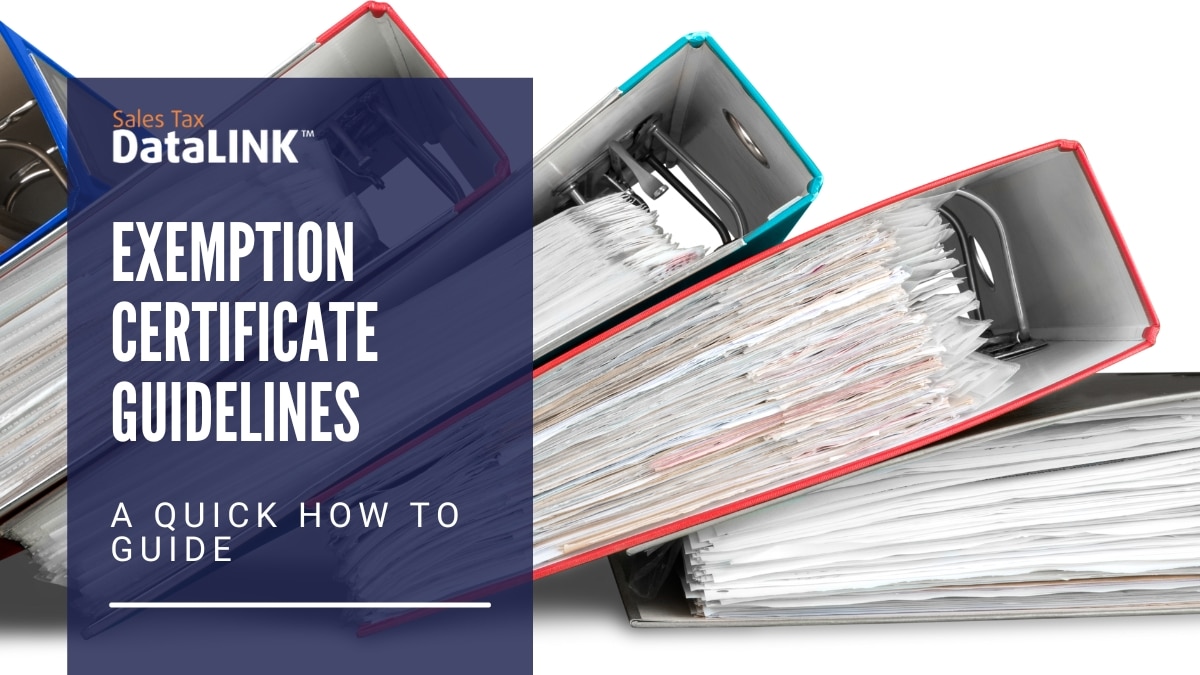Exemption certificates are documents issued to a purchaser that provide documentation to show the sale is exempt from sales tax. Typically certificates are issued by a state agency, such as the Department of Revenue, proving that a certain buyer is recognized by the state as exempt from paying sales tax on their purchases of particular goods or services. Exemption certificates protect sellers in a tax audit showing that they have not incorrectly collected sales tax, but the wrong forms won’t protect you. In the event of an audit invalid exemption certificates are just as bad as undocumented exemptions. Your company becomes liable for the uncollected sales tax.
That is why it is so important for companies operating in multiple states to do their due diligence and fully understand which forms will hold up to an audit and which ones will leave you crying foul. So how do you know what constitutes a good exemption certificate? The following guidelines can help answer that question and give you a better idea of what to look for when accepting exemption certificates. Exemption Guidelines: Accept No Substitutes, While it may be tempting to accept alternative forms of documentation, such as a seller’s permit, in lieu of an official state exemption certificate it isn’t advised. The best practice is to only accept documents that the state has provided as proof of sales tax exemption.
While some states may honor seller’s permits as proof of exemption going by the book can save you time during an audit and remove any doubt from an auditor’s mind that you are making an effort to comply with formalities. Understand Multi-Jurisdiction Certificates: Exemption Certificates that are valid in multiple jurisdictions eliminate the need to issue dozens of certificates to a single vendor, saving businesses time. Examples of such certificates include the Uniform Sales & Use Tax Certificate, Multi-jurisdictional, and Streamlined Sales Tax Multi-state Certificate. However, while multi-jurisdiction certificates are more convenient, they may not cover all types of exemptions. That means that research to make sure they supply your needs and that your business is protected is still necessary.
Collect Complete Certificates: Not only is collecting the right forms necessary, but making sure that the forms are filled out correctly is also key. Businesses get into just as much trouble for accepting forms that have incomplete or incorrect information as they do for accepting incorrect form types. Common errors you may encounter when documenting exemptions:
- Missing or unauthorized signatures
- Missing issue dates
- Addresses other than the direct buyer and seller are present on the form
It is important to include all of the necessary details when handling exemption certificates. You could owe a hefty sum if you don’t have a process in place for ensuring your certificates are accurate and complete.




